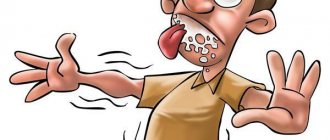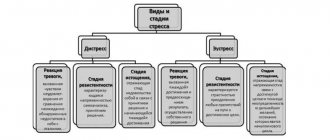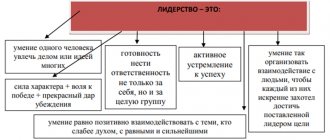Author: Sergey
29 May 2020 20:03
Tags: Othello history medicine facts
222
7
Most of us experience manifestations of jealousy. This is a completely normal feeling, unless, of course, it takes painful, ugly forms. Abnormal, pathological jealousy is a humiliating and destructive phenomenon that must be combated. Delirium of jealousy is a serious mental disorder, socially dangerous and capable of ruining the life of the jealous person and those close to him.
0
See all photos in the gallery
Mental deviation, which is called delusion of jealousy, is, first of all, an alarming symptom that indicates a serious illness. It may be associated with severe psychotic disorders or even brain damage. Most often we hear about painful jealousy in men, but this does not mean that the fair sex does not suffer from it. It’s just that this problem is much less common in women.
0
Scientists associate delusions of jealousy with diseases such as paranoid schizophrenia, chronic delusional disorder, as well as with injuries, neoplasms and infectious pathologies of the brain. Addiction to alcohol and drugs only aggravates the course of the disease and makes this type of jealous person even more dangerous.
0
Doctors especially emphasize the plot of jealousy, which is characteristic of men and women. Representatives of the stronger sex are usually driven by a motive that is not related to spiritual intimacy, love and fear of losing a loved one. They look for the fact of betrayal, accuse the partner of depravity and try to identify lovers. For ladies, it’s the other way around - everything comes down to feelings, emotions and fear of loneliness. Despite this difference, delusions of jealousy are equally dangerous for men and women, as they deprive a person of control over his actions. The phrase “killed in a fit of jealousy” appears too often in crime news headlines for us to ignore pathological jealousy.
Alcohol paranoid
Among all psychoses of alcoholic origin, alcoholic paranoid is in the top three. This diagnosis is made to every sixth patient who enters the clinic for the treatment of alcoholic psychosis. For a long time, alcoholic paranoia was not considered an independent illness.
But at present, acute alcoholic paranoid in men and women is recognized by experts as one of the most serious disorders, which requires urgent hospitalization and long-term rehabilitation.
The main symptom of this disease is intense delusions of persecution. There are several types of pathology, each of them has different symptoms.
Proper diagnosis is important for effective treatment, as the symptoms of paranoia are similar to those of other alcohol-related disorders (eg, delirium tremens).
Provoking factors
The only reason for the development of the disease in question is excessive consumption of alcoholic beverages. This disorder begins to develop in alcoholics in the third stage of addiction.
A larger percentage of patients are people who have been drinking alcohol regularly for more than seven years. The greatest likelihood of the disorder occurring is in those who drink more than half a liter of vodka every day.
There are also certain risk groups, which include alcoholics who have suffered a brain injury, who have severe heredity or epileptoid psychopathy.
Symptoms
Main symptoms of the pathology:
- affect;
- figurative delirium;
- inappropriate behavior.
Regardless of the form of development of the disease, its symptoms are similar to each other. The only difference is the duration. The manifestation of the first attack is possible with prolonged heavy drinking or with an excessively sharp increase in the dose of alcohol.
At the initial stage, alcoholic psychosis is manifested by withdrawal syndromes:
- insomnia;
- nightmares;
- sudden changes in psycho-emotional background.
A person feels severe melancholy, groundless anxiety, fear, which develops into real panic. Then delirium begins to develop, taking various forms:
- persecution mania;
- relationship mania;
- delirium of jealousy;
- self-accusation;
- poisoning and other disorders.
The first stage is also supplemented by the appearance of auditory and visual hallucinations, their duration is no more than two days. A person is constantly convinced that physical violence awaits him. He thinks that someone wants to kill him, and he even knows the method - he says that they are trying to poison him, stab him, hang him or shoot him.
Sometimes an alcoholic is sure that his family members are also in danger. Usually, during an attack of delirium, an intense feeling of fear appears. A person acts impulsively - he wants to run away somewhere, calls for help, starts hiding and screaming loudly.
Diagnostics
It is often difficult for specialists to make the correct diagnosis. Paranoid is difficult to differentiate from paranoid schizophrenia, which occurs due to alcohol intake.
To make a correct diagnosis, it is very important to collect complete anamnestic data. If the psychosis is not provoked by a prolonged binge or a hangover, a diagnosis of paranoid schizophrenia is made.
Treatment
Paranoid therapy should be carried out only in a specialized medical institution. If the form of psychosis is mild, the first symptoms stop, after which the patient can continue therapy on an outpatient basis. If the form of psychosis is severe, the patient remains in the clinic for at least a week.
Several groups of drugs are used for drug treatment:
- neuroleptics;
- antidepressants;
- tranquilizers;
- vitamin preparations.
After the patient is hospitalized, he is administered drugs to get rid of fear and paranoia (haloperidol).
If there are signs such as mood swings, antidepressants are used. The patient can be sent home only after the symptoms of delirium and aggression completely disappear.
Typically, such a disease does not cause serious consequences and does not negatively affect consciousness. But this is only if the patient undergoes drug therapy in full and the person no longer touches alcohol.
If the patient begins to lead the same lifestyle and drinks alcohol again, hallucinosis and long-term psychosis may occur against the background of previously suffered paranoia.
Diagnosis of the pathological process
The examination is carried out by a psychiatrist. If the pathology is of alcoholic origin, delusions of jealousy are determined by psychiatrists and narcologists. A standard initial examination of the patient is carried out.
Oral survey. Used to evaluate symptoms. Compile a complete clinical picture. This will allow you to quickly determine the probable disease. As a rule, delirious patients immediately manifest themselves. Crystallized inadequate ideas become noticeable, especially to an experienced psychiatrist.
Anamnesis collection. We need to understand where the roots of the disorder are. As a rule, there is a burdened heredity and family life characteristics. Frequent conflict situations, mistrust of spouse, problems with children. A craving for alcohol and a tendency to pathological processes of a psychiatric profile are detected. There are many factors.
A conversation with a clinical psychologist to quickly determine the disorder. There are pronounced problems with thinking and illogicality. If the deviation is of a schizophrenic nature, then a disconnected thinking process is revealed.
Is this enough to diagnose delusions of jealousy? No, not enough. If alcoholic delusions of jealousy can be linked to alcohol intake, then schizophrenic and other forms are much more difficult to diagnose. It is necessary to observe the patient in the hospital for at least several weeks to make the correct diagnosis.
Differential diagnosis is required. Delusions of jealousy are distinguished from schizoaffective disorder, neurosis, and anxiety disorder. Those conditions in which thinking disorders may occur. There are three differentiation criteria:
- Persistence of the condition.
- The ability to convince the patient.
- The harmony of delusional constructions. In schizoaffective psychoses, for example, delusions are not persistent. Constantly changing in details and even large constructions. The same is most typical for manic syndrome in bipolar disorder.
The disease also occurs in old age. But the main category of patients are young men under 40 years of age. The second peak occurs in the period 45-50. However, the majority of cases are patients of fertile age. The problem can also occur in young women.
What is alcoholic delirium of jealousy?
Alcoholic delirium of jealousy is a disorder that occurs against the background of prolonged abuse of alcoholic beverages. Symptoms develop gradually. The main characteristic of this condition is the predominance of the idea of infidelity on the part of the wife or husband.
A delusional idea appears, gradually it draws the person in more and more, and soon he loses touch with the real world. The alcoholic keeps an eye on his wife, makes unreasonable demands, forces him to admit to cheating, and even shows sadistic tendencies when addressing his wife.
Even after a person stops drinking alcohol, alcoholic delusions of jealousy can continue to bother you for a long time.
Symptoms
This disorder most often develops in the second or third stages of alcohol dependence. The average age category of patients is over 45 years old. This type of psychosis is characterized by a high degree of progression, the disturbances are aggravated, the level of aggressiveness increases, and social behavior changes for the worse.
The patient begins not only to be jealous, he shows cruelty and aggression towards his wife or girlfriend, he can beat or even kill. If alcoholic delusions of jealousy develop, treatment should be carried out as early as possible. Moreover, it must take place in combination, with the use of drugs prescribed by a narcologist and a psychiatrist.
Delusions of jealousy usually develop gradually. Initially, episodic attacks of mistrust or unfounded claims appear, often during severe alcohol intoxication. Over time, real events in the mind of an alcoholic are mixed with fictitious ones; he loses touch with reality even when sober.
As it progresses, delusional ideas of constant infidelity and lovers arise; the patient believes in what he himself came up with (for example, that he saw an act of infidelity with his own eyes).
Causes
The main reason for the development of this disorder is prolonged abuse of ethanol-containing products. More often, this diagnosis is made to people who, even before the disease, have the following character traits:
- self-centeredness;
- distrust;
- excessive suspicion;
- constant demands on others.
In most patients, alcohol dependence continues for at least 10 years. There are signs of personality degradation.
Ethanol molecule
Previously, such patients had repeatedly suffered delirium tremens or other types of alcoholic psychoses.
Diagnostics
It is not difficult to distinguish this disorder from other disorders. Usually the diagnosis is made based on the clinical picture and after collecting the patient's anamnestic data.
bezokov.com
Delusions of jealousy are a pathologically obsessive belief in betrayal on the part of a partner, not based on any direct or indirect evidence of this.
Alcohol or genetics?
This disease most often affects men, although it also occurs in women. The catalysts that trigger such a mental deviation from the norm in 80% of cases are alcoholism and decreased erectile function. Although, one cannot discount a genetic predisposition to certain mental illnesses. For example, in patients with schizophrenia, delusions of jealousy can arise as a concomitant symptom, causing acute emotional obsessions about betraying the object of attachment, coupled with a disorder of thinking and an inadequate perception of reality.
Have you prayed at night, Desdemona?
Delusions of jealousy in men are expressed in constant attempts to convict their beloved of treason, surveillance, a thorough search of her things, total control of phone calls or SMS and unfounded accusations. All arguments and beliefs to the contrary have no effect on him. He perceives every attempt to justify himself as further proof that he is right. The poor guy susceptible to this disease is unable to cope with the paranoid phobias of betrayal that haunt him, which are based on a hypertrophied inferiority complex, the fear of being abandoned or humiliated by the superiority of another man. It seems to him that if even the slightest evidence is found confirming the presence of a rival, a “green light” will light up in front of him, giving the go-ahead to release the aggression that has accumulated in him for a long time and justifying solving this problem by any means, including suicide or killing his offenders, and sometimes both at the same time.
Typically, the first manifestations of delusions of jealousy, the symptoms of which are often confused with a simple increase in pickiness, begin after 40 years, although they may also occur at an earlier age. As noted above, delusions of jealousy in women are a rarer phenomenon, but the symptoms and the main nature of the course of the disease are absolutely identical to their male counterparts.
Unfortunately, in many cases, people suffering from this scourge pose a serious threat to others and need qualified help. Treatment of delusions of jealousy is carried out with medication, using antipsychotics and should be carried out exclusively in a hospital, under the supervision of a specialist.
womanadvice.ru
In the case of pathological jealousy, the individual’s conjectures and fantasies often have no real confirmation; he does not deviate from his thoughts even in the face of convincing arguments to the contrary and often accuses him of treason with several rivals. Delusions of jealousy are characterized by a certainty formed from fantasies rather than facts, as well as a lack of logic.
In fact, painful jealousy is one of the symptoms of various mental illnesses. For example, schizophrenia. In this case, the so-called Othello syndrome, as a rule, manifests itself by the age of 40, it is accompanied by aggressive manifestations in men and depressive symptoms in women.
The presence of delusions of jealousy can be assumed by the presence of groundless accusations of treason and their categoricalness, the patient’s complete conviction that he is right, an illogical interpretation of any actions of the other half (any actions are considered as a desire to deceive and change), talkativeness, expansiveness, and non-perception of one’s pathology.
The plot of this pathology is a strong concern about the fictitious betrayal of a sexual partner. Typical forms of symptoms of this mental pathology are delusional, obsessive and overvalued ideas.
There is an opinion that delusions of jealousy are a variation of delusional disorder, therefore, the name “delusions of jealousy” does not correspond to the truth. The key mental pathology in this case is the delusion of the partner’s infidelity, which is often combined with the patient’s guesses that the guilty party is trying to poison him (her); slips in drugs that reduce sexual activity; puts the patient to sleep and at this time has sex with his opponent. These delusions are related to the delusion of persecution, and the delusion of jealousy is its variety.
Delusions of infidelity can be initial symptoms of schizophrenia or additional signs of an existing mental illness. These are the individual’s own conjectures, not acceptable to others, but not causing inconvenience to himself. The patient himself considers them to be the truth; he does not resist these thoughts.
Delusions of jealousy are considered as a modification of delusional disorder in the classifier of the American Psychiatric Association (fourth edition) and the International Classification of Diseases (tenth edition), which is used today by domestic doctors.
It happens that delusional ideas of infidelity do not appear against the background of other mental illnesses and exist on their own. Their content is distinguished by logic, consistency and plausibility, unlike the strange associations inherent in schizophrenic delusions.
Disorders of mental function, which are characterized by delusions of jealousy, include disorders of the emotional state (clinical depression, manic-depressive psychosis), and in general, it can occur with any dysfunction of the brain.
In the case of obsessive ideas of jealousy, thinking about a partner’s betrayal takes up almost all the time, it is impossible for the patient not to think about it, disturbances in relations with the partner begin, his freedom is limited, and his actions are controlled.
In this case, thoughts about betrayal in the patient’s perception are something abstract, but he is not able to get rid of them. Such patients realize that their fears are groundless, and at times they feel ashamed. They are constantly in a state of stress caused by obsessive ideas that contradict the real situation. As a result, a continuous process of transition from obsessive pathological jealousy to delusional jealousy may begin.
At the end of the last century, there was an assumption that Othello syndrome can manifest itself as an overvalued idea, namely, a completely acceptable, understandable belief, on which the patient is concentrated to an inadequate extent. It does not cause internal protest in the patient, and although it is not considered delusional, the patient checks the actions of the partner, trying to make sure that there is no betrayal. How common this form of pathology is is unknown, since it is assumed that patients with highly valuable ideas are usually beyond the attention of psychiatry. It is considered possible that overvalued ideas are delusions of jealousy.
Persons with borderline emotional disorders, especially paranoid ones, are predisposed to any manifestations of delusional jealousy.
They are distinguished by a negative and not fully formed self-identification, a feeling of their low value, anxiety about possible refusal in intimate relationships, betrayal of a partner, affective instability, projection of attractions unacceptable to oneself onto a partner.
With delusions of jealousy, combined disorders are common; in its pure form it is very rare. The presence of various combinations (with personality disorders, mental pathologies, alcohol and drug abuse) usually creates a very complex and ambiguous clinical picture of the disease.
The first signs of the development of delusions of jealousy are gloomy thoughtfulness with frequently repeated obsessive conversations about infidelity, at first these are rare episodes. Then they become more frequent, specific and categorical accusations begin, often devoid of elementary logic, and a refusal to accept any justifying arguments. The patient is not aware of his pathology.
Treatment
Getting rid of the delusion of jealousy is not so easy. A group of events is required.
Drug treatment is most often practiced. Several types of drugs are used.
- Neuroleptics. They are antipsychotics. At the early stage of the disorder, you can take atypical drugs: Ariprizole, Risperidone, Rispolept and similar ones. If the pathological process is advanced, typical drugs like Haloperidol will be required.
- What medications are used besides? To reduce the intensity of delusional symptoms and restore normal thinking, tranquilizers are prescribed in a moderate dose. Among other things, they relieve anxiety and normalize sleep.
- Pathology can also be treated with mood stabilizers. But strictly in combination with other drugs. Antidepressants are prescribed over a long, multi-month course.
A prerequisite is that patients are treated in a hospital until remission occurs. Because such patients are socially dangerous.
After recovery from psychosis, psychotherapy is indicated. The patient is taught to think logically. Do not slip into delusional constructions. It is advisable to work with two partners at once to build trust.
How should the wife or husband of a patient behave?
It is important not to provoke your spouse and not to succumb to the person’s provocations. It is advisable to stay away from the patient during the acute period, since there is a real danger.
What to do to prevent paranoid delusions of jealousy?
It is necessary to be treated promptly. Otherwise, the prognosis will be unfavorable. Frequent exacerbations are likely. Or even long-term episodes of continuous progression of the disorder.
Source: ponervam.ru
How to deal with a jealous spouse
An interesting pattern, but the more a man assures a lady of his innocence, the less she believes him.
Persuasion and persuasion will not help here. In love, women behave illogically and irrationally. You can't lie to a jealous woman. Honest confessions, expressing real thoughts - all these actions can prove to the wife that there is nothing to hide from her. Trust in each other is one of the main feelings in a relationship.
If the wife is more or less adequate and listens to common sense, then you should just calmly discuss all the sensitive moments with her. Organize, as it were, an “outside view” - simply list the events, but do not start conversations on the topic “guilty or not of treason.”
You need to respect your wife’s experiences, but you shouldn’t try to make amends for your “imaginary” sins with sweets, flowers, or affection. This will only add firewood to the huge fire of her suspicions.
Peculiarities of manifestation in the wife
Although men are pathologically jealous, and they are more likely to experience this disorder, only a woman can turn a man’s life into a real nightmare.
In women, emotions accumulate, and under the influence of depression and stress, negative emotions can turn into pathological jealousy.
The catalyst for the development of jealousy is often depression. Life next to his once affectionate wife becomes simply unbearable.
Symptoms of pathological jealousy in a woman:
- Constant scandals;
- Quarreling;
- Suspicions;
- Alternating with tides of tenderness for the spouse.
Signs of mental disorder
The diagnosis can be made to women in cases of the following behavioral characteristics:
- Unreasonably spying on a partner, tapping his phone, checking email, and other methods of total control;
- Unreasonable aggression towards the spouse, hysterics, tears, false accusations of infidelity;
- Refusal to have intimacy with your husband.
Jealousy in men manifests itself:
- Outbursts of causeless aggression;
- Spying on your spouse;
- Refusal to show feelings towards your spouse, non-acceptance of kisses, hugs;
- Reproaches and sidelong glances thrown at the wife;
- Expressing dissatisfaction in the case of coming home late for a good reason, meeting with friends, corporate events at work evoke negative emotions.
A man can even turn into a real “domestic tyrant”:
- Cause bodily harm to your wife and then apologize profusely for your behavior;
- Restrict her freedom, for example, lock her at home;
- Monitor all calls and SMS.
Causes of the disease
More often, such a mental disorder develops in individuals who have internal complexes and have suffered psychological trauma.
This disease does not occur spontaneously: a person often has it, but due to circumstances it can worsen.
Reasons that can serve as an impetus for the development of the disease:
- Low self-esteem;
- Fear of being alone;
- Lack of confidence;
- Failures in your sex life.
Pathological jealousy can be caused by one of the following mental disorders:
- Neurosis;
- Paranoid schizophrenia;
- Depression;
- Organic brain damage;
- Endocrine diseases;
- Taking psychotropic drugs;
- Alcoholism and others.
The following may cause the development of the disease:
- Vascular disorders in the brain;
- Hormonal surges, especially in women;
- PMS, menopause.
Effective Treatments
If the case is complex and advanced, then the couple needs to consult a psychotherapist for joint training.
An experienced doctor, in a course of sessions, is able to understand the causes of the disease and calm the jealousy of one of the spouses. A psychologist will teach a married couple to respect each other, the personal feelings of each partner, help establish contact and get closer again, create a warm relationship.
Sometimes, if excessive jealousy is caused by a mental illness, such as depression or schizophrenia, you will need to take appropriate medications as prescribed by your doctor.
Delusions of jealousy and various manias are the sphere of activity of a psychiatrist. For schizophrenia, manic-depressive states, and borderline mental states, the psychiatrist prescribes antipsychotic drugs. After the symptoms of the underlying disease are relieved, excessive jealousy will disappear.
Any married couple should remember that the groundless jealousy of one of the partners is an abnormal condition that requires action, and sometimes even psychological help.







